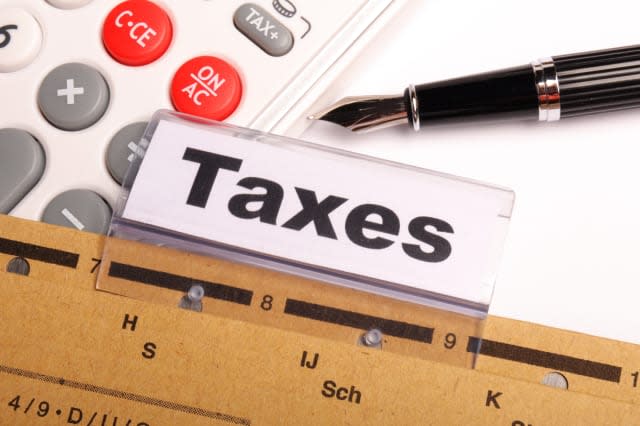Savings tax change could leave you with £100 fine

From April 2016, the rules regarding tax on savings changed. Overall it has been great news, freeing millions of people from paying any tax on their savings income. However, the experts are warning that the change could come with a nasty sting in the tail - creating dangerous confusion for those who complete self-assessment tax returns.
See also: Retiring in 2017: what you need to know
See also: The new banks paying the best savings interest rates
See also: Are you making this savings account mistake?
The change means that from April this year, basic rate taxpayers have been able to earn up to £1,000 in savings income without paying tax, while higher rate taxpayers can earn up to £500.
In the past, basic rate taxpayers had tax on interest from banks and building society accounts automatically deducted, so they didn't need to take any action. Higher-rate taxpayers, meanwhile, had to complete a self-assessment tax return in order to pay the remainder of the tax due on their savings.
Some of these people now no longer need to file a return - and the taxman may even have sent them a letter stating that you no longer need to.
The risk
However, Chas Roy-Chowdhury, head of tax at the Association of Chartered Certified Accountants, says it's not that simple, and that even some of the people that HMRC has written to may need to complete a return.
These include people who may have received a pay rise to take them from the 40% tax bracket to the 45% one. In those instances they will lose their personal savings allowance altogether, and have to pay tax on everything they make on their savings.
Alternatively, other aspects of your finances may have changed - sparking the need to submit a tax return. There are plenty of reasons why you may have extra tax to pay. You may, for example, have received £2,500 or more in untaxed income; you may have sold assets like shares or a second property and need to pay capital gains tax; you may have drifted over an income of £50,000 and have received child benefit you need to pay back; or you may be a higher rate taxpayer with dividends from shares held outside an ISA.
There are also plenty of reasons why you may have a tax refund due. You may, for example, have donated money to charity, contributed to a pension as a higher or additional rate taxpayer and your scheme isn't set up for automatic tax relief, or you may have work expenses over £2,500.
Roy-Chowdhury, says: "If a taxpayer has changed jobs or circumstances, they may still be eligible for a tax refund (or owe tax). If you have any doubt about your tax status, even if you have received communication from HMRC, I strongly recommend that you self-assess as usual despite PSA changes."
If you need to submit a tax return and you fail to - even if no tax is actually due - then you will receive a fine of £100 for the first day that your form is late. The fine will grow as time passes - so it's important to act sooner rather than later. Roy-Chowdhury adds: "Online tax returns are due by midnight on the 31 January 2017, and it is worth remembering to register at least two weeks beforehand to allow enough time to complete the registration process."




